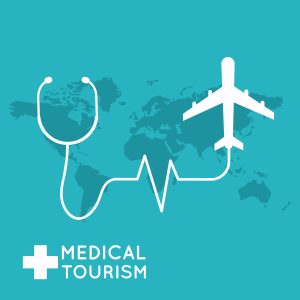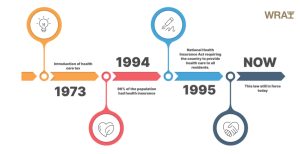Healthcare in Israel
Israel is internationally recognized for its groundbreaking advancements in medicine, research and health care delivery. With a diverse population and a health care system renowned for its innovation and accessibility, Israel provides a compelling case study for those seeking to understand the intersection of cutting-edge health care, technological innovation and social inclusion.
an Israeli citizenship specialist
We embark on a journey to uncover the key elements that have contributed to Israel’s remarkable healthcare success story. As we delve into the intricacies of healthcare in Israel, we will examine its historical foundations, the principles that underpin it and the ways in which medical care has harnessed innovation to address the ever-changing landscape of medical science and patient care. Moreover, we will explore the unique challenges and opportunities that Israel faces as it strives to maintain its position as a global healthcare leader, while also addressing the evolving needs of its diverse population.
Brief history of the Main Law in Israel healthcare
During the decades, the Israeli system faced a dual challenge. It must strive to enhance the fairness of services in light of increasing demands for privatisation and reduced government involvement, also it must grapple with rising costs in the midst of growing expenses for medical services, as well as increasing income disparities and mounting demands from disadvantaged population segments.
By the conclusion of 1994 nearly 96% of the populace had acquired health insurance coverage. In 1995 (January the 1st) the National Health Insurance Act was implemented, compelling the nation to ensure healthcare access for all its residents. This landmark legislation remains in effect to this day, representing the most current and enduring health policy in force.
Free Health Services
The National Health Insurance in Israel is called “Bituah Leumi“. It’s a government organisation that provides medical insurance functions for citizens and provides them with financial support if they are unable to support themselves. Health care providers called Kupat Holim. If you are a resident, Bituah Leumi automatically covers the cost of Kupat Holim services for you. Bituah Leumi members can choose between four public healthcare companies (more details about it below). Israel provides a right to healthcare and universal healthcare for its citizens.
What is Special About the Healthcare System?
Residents are insured by the National Health Insurance Law. They are paying monthly contributions to the National Insurance Institute (Bituah Leumi). Each resident can choose one of four health insurance plans regardless of age, existing illnesses or health status:
This can be done no more than 2 times a year. The largest health insurance fund is Clalit. It is used by half of Israel’s citizens. Clalit offers comprehensive healthcare services across all medical specialties. The main disadvantage of “Clalit” is that because of the large number of clients, the reception of narrow specialists or studies have to wait longer than in others. But this disadvantage is compensated by the fact that a medical facility belonging to “Clalit” can be found even in a “remote” village. The network of branches covers the entire territory of the country. The second one is Maccabi, where about 1.5 million Israelis are insured. More information about each plan you can find on the official websites.
Private Medical Care
Many Israelis rely on the public system for their primary healthcare needs. However, there is a private sector. It is often used for supplementary or specialised services. A lot of people all over the world participate in Israeli private health insurance.
Citizens can also pay for services in private local insurance companies outside the government system. There are some thighs that they should take into consideration. They usually do not cover illnesses that existed before you approached. They have the right to refuse coverage to anyone based on their state of health. It requires a 90-day waiting period to start.
Israel medical tourism

From groundbreaking medical breakthroughs to a tapestry of cultural diversity, Israel offers far more than just medical expertise; it offers a transformative healthcare journey like no other. Medical tourism is a relatively new trend that is gaining popularity in Israel. Current interests lay in areas:
Neurosurgical pathology
Neurosurgery is one of the most complex fields of medicine. “Suraski” – clinic in Israel – a place where the best neurosurgeons work, performing operations on the brain and spinal cord, curing spinal cord injuries, correcting such complex failures of the nervous system, such as epileptic seizures, hydrocephalus and so on. Some surgeries are performed while the patient is awake and do not require skull trepanation, the most traumatic mechanical intervention when manipulating the human brain. The success rate of neurosurgical operations in Israel reaches 95%
Malignant tumour
Oncology in Israel is the most progressive medical field. The achievements of doctors in this field are impressive. In addition to conservative ways of treating ailments, Israeli doctors use innovative methods of therapy. It means vaccination and targeted effect of medications on tumour cells and metastases produced by it. Such treatment schemes are often used in patients with terminal stage of pathologies. If it comes to operations, Israeli specialists prefer minimally invasive schemes of intervention, for example, by laparoscopy. After such manipulations, recovery is several times faster and easier.
Orthopaedics and cardiology
The best indicator of medical care quality is the number of people who come to Israel’s clinics from other countries. Pathologies related to the musculoskeletal system, in particular joint lesions, are successfully treated by penetrating through small punctures. High-quality endoprosthesis is also used, which has served for about two decades. Israeli doctors have made serious achievements in the field of cardiology. Complex heart defects, including children’s, stenting, balloon integration – all this is successfully done by local surgeons. It is important to mention the unique “Hybrid” operating room, where two teams of specialists work simultaneously, collegially solving the medical problem of one patient.
As the world continues to evolve, Israel’s dedication to healthcare innovation and quality is sure to keep it at the forefront of global medical tourism. In an era where healthcare knows no borders, Israel stands as a shining example of what can be achieved when the pursuit of health, well-being, and humanity converge in a single destination.
Quality of Treatment
The quality of healthcare services in Israel is widely recognized both nationally and internationally. Israel has made significant strides in various aspects of healthcare, earning a reputation for excellence in medical services, innovation, and research.
However, there are more non-obvious reasons such as the qualification of Israeli doctors. Professionalism of Israeli doctors is recognized worldwide. Preparation to become a doctor starting at school, if a child decides to devote himself to medicine.
Selection for medical universities in Israel is the strictest, and the first obstacle – the entry, because the competition is hundreds of people for one place. This is not the main difficulty: future doctors expect seven years of gruelling intellectual labour, including an extended internship. Less than half of applicants receive a diploma of graduation, only the best of the best. Because of intensive training, specialists from Israeli clinics are highly valued all over the world.
Prices for Medical Services
Access to quality medecine is a fundamental concern for individuals and nations alike. In the diverse tapestry of healthcare systems worldwide, Israel stands out with its advanced medical infrastructure and a commitment to universal healthcare through its National Health Insurance (NHI) system. Yet, understanding the landscape of healthcare costs in Israel remains vital for both residents and those considering medical treatment within its borders. Pricing is made according to a verified scheme, closely regulated by the Ministry of Health of the country. Value for money is considered to be the most affordable worldwide.
The example of pricing in Sourasky (Ichilov) Medical Center:
| PROCEDURE | COST |
| Phone Consultation | 500$ |
| Primary Diagnostic | From 1200$ |
| CT Scan | 400$ |
| PET-CT | 1200$ |
| MRI | From 1100$ |
| Surgical Operations | From 3000$ |
| Chemotherapy | From 2200$ |
| Immunotherapy | From 1900$ |
| Target therapy | From 2000$ |
Israel During The Covid Pandemic

The main feature of the new intensive care wards was complete isolation: they were special infection boxes with a separate ventilation system. They made it possible to avoid the spread of disease within hospitals. The wards were also equipped with a 24-hour monitoring system. This allowed doctors to be aware of the patients’ health status.
Benefits of healthcare in Israel
Israel’s medicine offers several benefits, making it one of the advanced and efficient systems in the world. Some of the key advantages include:
Universal Coverage. Israel provides universal healthcare coverage to all of its citizens and residents. Everyone is entitled to basic healthcare services, regardless of their status.
Comprehensive Services. System offers a wide range of medical services, including preventive care, diagnostics, treatment, surgery, and rehabilitation. It covers everything from routine check-ups to complex procedures.
High-Quality Medical Care. Israel is known for its high-quality medical care and has world-class hospitals and facilities. The country invests heavily in medical research and technology, leading to advanced treatment options and cutting-edge medical equipment.
Skilled Healthcare Professionals. Well-trained and highly skilled healthcare workforce, including doctors, nurses, and other medical professionals is a huge advantage. Many healthcare providers receive their education and training from top institutions around the world.
Short Wait Times. In general, wait times for medical appointments and procedures are relatively short compared to some other countries with universal healthcare systems.
Comprehensive Approach. Israel emphasises a holistic approach to healthcare, taking into account both physical and mental health. There is a strong focus on mental health support and services.
Health Promotion and Disease Prevention. The healthcare system in Israel places a significant emphasis on health promotion and disease prevention. Public health campaigns and initiatives aim to educate the population about healthy lifestyles and preventive measures.
Health Information Technology. Israel has advanced health information technology systems, including electronic health records and telemedicine capabilities, which enhance the efficiency and accessibility of healthcare services.
Cultural Diversity. Healthcare system serves a diverse population, which has led to the development of culturally sensitive healthcare services that respect the diverse needs and beliefs of its citizens.
Medical Tourism. Israel’s reputation for medical excellence led to the growth of specified tourism. Patients from around the world travel to Israel to receive better quality medical treatment at competitive prices.
Government Oversight. The Ministry of Health oversees and regulates the system to ensure quality and safety standards are maintained on the highest level. Since the early years of medical development in the country, the government has done everything to make the services most accessible to all segments of the population.
It is an advanced, efficient system. One distinctive feature of this system is its extensive use of longitudinal digital medical records, which have been maintained for over 25 years. Israel’s healthcare infrastructure, primarily publicly funded, boasts low membership turnover and a remarkable level of IT interoperability. This combination positions Israel as a prominent player in the world’s thriving data economy. Coupled with Israel’s entrepreneurial spirit and innovative healthcare leadership, the nation serves as a potent catalyst propelling discussions and practices in healthcare about 5 to 10 years ahead of the curve.
an Israeli citizenship specialist


